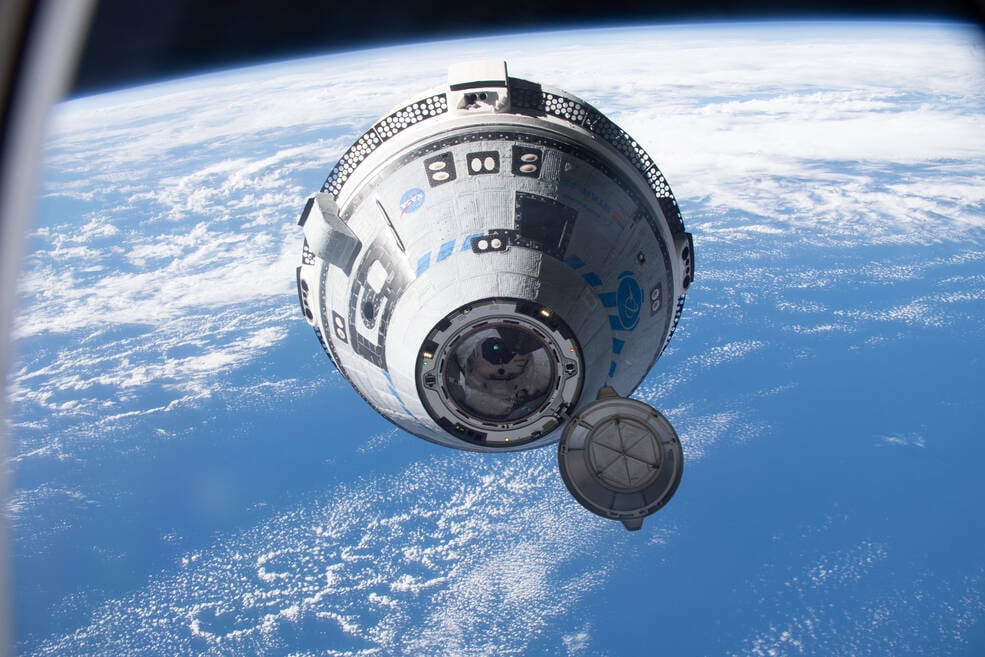Silent Innovator is a term used to define a person creating innovations without seeking public recognition while making improvements behind the scenes. These innovators work behind the scenes to enhance products and transform industries like logistics, warehousing, waste management, and supply chains.
They often focus on improving existing systems to improve efficiency. These emerging startups leverage advanced technologies to offer innovative services and solutions. These startups play a crucial role in the growth of the global economy, ensuring efficiency, and sustainability. Despite their lack of publicity, these startups make revolutionary changes that enhance productivity. Unlike other innovators, silent innovators focus on getting positive results instead of personal achievements and public recognition.
Behind-the-scenes industries are the supporting sectors that play an important role in the global economy. They ensure the smooth functioning of visible industries by driving innovations and providing necessary services for the distribution of products. This article mentions how startups are revolutionizing the industry. It focuses on the latest innovations and emerging startups while discussing the potential of silent innovators. The article also mentions some of the innovation behind-the-scenes startups across various sectors.
The role of behind the scene startups
Behind-the-scene startups are companies operating out of the public eye and focusing on developing technology or services to help other businesses. These startups are the pillar of the industry and provide essential services without directly interacting with end consumers. Behind-the-scenes industries remain unnoticed yet play a crucial role in economic stability. Increased consumer expectations, environmental concerns, and technological advancements have fueled the need for efficient solutions. These startups aim to streamline operations and enhance services while being invisible to the end consumer.
Behind-the-scenes startups mainly specialize in niche areas like cybersecurity, logistics, or marketing automation while providing expertise and deep technical knowledge to other companies. They serve other businesses as clients through partnerships or integration. These startups have flexible models that allow them to scale and adapt to meet businesses’ changing needs. These startups design solutions to be easily adaptable and scalable according to market needs.
The rise of logistic startups
Logistics plays an important role in commerce to run the supply chains smoothly. These startups are using technological developments like supply chain optimization and automation to improve the efficiency of processes.
- AI-powered route optimization: AI-driven route optimization in supply chain management leverages artificial intelligence algorithms to analyze huge amounts of real-time data like vehicle capacity and traffic conditions. This allows companies to optimize routes and create the most efficient delivery route to reduce fuel consumption, minimize travel time, and improve efficiency.
- Blockchain for secure and transparent logistics: Blockchain technology enables secure logistics with enhanced transparency and security in supply chain management. This advanced technology enhances the supply chain by creating decentralized and tamper-proof ledgers to record every movement of delivery goods throughout the journey. This real-time information sharing about location and product’s condition enhances traceability and minimizes the risk throughout the logistic process.
Revolutionizing Waste Management through technology
With technological advancements and innovations, the waste management industry is transforming. The startups are making waste management cost-effective, environmentally friendly, and efficient. Here are some of the platforms that use technologies like AI-based sorting systems to reduce waste while improving sustainability.
- Smart waste tracking and management: These technology-driven platforms use data analytics and sensors to monitor the fill level of dustbins in real time, sending automatic alerts to the waste collection crew for scheduled pickup. This allows optimized waste collection routes and improves water management efficiency.
Sensoneo:
Sensoneo is a smart waste management solution provider that monitors garbage levels in waste bins. The startup uses sensors and software for more efficient and sustainable water management. The startup has secured over 8.96 million USD across three funding rounds since its inception, including $6.63 million raised during its series A round. The company has investors including EIC Fund and Taiwania Capital. The waste management startup faces competition from other companies in the same segment such as ReLearn.
Enevo:
The waste management solution offering platform provides real-time data for waste levels while calculating collection schedules and routes for all waste containers. The company uses IoT sensors and software to reduce waste management costs. Enevo works with other waste management companies and the government to improve the efficiency of waste collection and recycling. The firm receives funding from Lifeline Ventures, Earlybird, and Draper Associates. The startup competes with Evreka, Winow, and other waste management platforms.
- AI-driven sorting and recycling innovations: The systems use artificial intelligence technology for efficient sorting of waste materials by automatically detecting and categorizing waste materials. This maximizes the potential for upcycling and improves recycling rates while promoting a circular economy. Startups like AMP Robotics, Metaspectral, and EversetLabs are leveraging artificial intelligence to improve the sorting and processing of recyclable materials.
AMP Robotics:
AMP Robotics is an AI-based waste sorting firm that provides robotics to automate recycling. The firm aims to make recycling more sustainable and efficient. The company uses artificial intelligence to identify waste material and leverages machine learning technology to keep a record of identified materials. AMP Robotics has secured around 178 million USD across all its funding rounds, this includes $8 million raised from Microsoft at a series C round. The company faces competition from ZenRobotics and Superbin.
- Sustainable waste-to-energy solutions: Waste-to-energy solutions convert waste into energy while reducing the amount of waste and improving air quality. This method reduces environmental pollution and turns the waste into usable materials by creating new products.
The waste-to-energy solution like Pyrolysis is used on oxygen material as it gets broken down in the absence of oxygen to produce solid, liquid, or gaseous products. Sustainable solutions include recycling or composting. Startups including Greenspark and Synova are developing technologies that convert waste into renewable energy and usable products.
The silent innovation of supply chains
Technological advancement, automation, and data analytics created various unnoticed changes within the supply chain operations such as increased efficiency and responsiveness of Supply chain operations. Some of the key factors of this silent transformation include:
- IoT-enabled smart tracking: Companies like Tive uses IoT devices and sensors to monitor and track the location and real-time condition of the product throughout the supply chain. This allows businesses to have transparency enabling operational efficiency and predictive maintenance to prevent unexpected delays and losses.
- AI and machine learning for optimization: Artificial intelligence and machine learning algorithms are being used to predict demand patterns and future disruptions. Startups like Coupa and o9 Solutions use AI-driven insights to enhance supply chain efficiency and increase profitability.
Role of AI and Big Data in driving efficiency
Artificial intelligence and big data analytics allow automated decision-making based on big datasets to optimize behind-the-scenes operations. These advanced technologies enable businesses to predict future demand, identify patterns, and optimize operations while reducing costs and improving productivity through predictive analysis.
Artificial Intelligence algorithms provide predictive insights using vast data to help businesses optimize decisions to enhance logistics and supply chain performance. Predictive maintenance and risk assessment using data analytics involve using real-time and old data to anticipate equipment failures and reduce downtime. Automation eliminates the need for human work in repetitive tasks allowing businesses to reduce workforce and improve scalability. Automation enables streamlined backend operations and enhanced scalability.
Challenges Faced by Silent Innovators
Silent innovators have huge potential and impact on society but despite playing a crucial role behind the scenes the startups in these sectors face significant challenges like limited networking opportunities. Some other challenges include:
- Funding and investment barriers: Backend startups are not visible to consumers and it can be challenging to convince investors for funding as they often prefer high-visibility startups over behind-the-scene startups. Another challenge is that startups with high growth potential and direct customer engagement are prioritized during investments.
- Limited public recognition: Silent innovators lack recognition, so despite contributing they might not be recognized for their contributions. This leads to the feeling of being overlooked. Many transformative innovations go unnoticed by consumers as they struggle to gain visibility.
- Limited Opportunities: Building connections with investors and other people in the industry can be difficult for silent innovators, leading to missed opportunities.
- Regulatory hurdles: Silent innovators encounter complex industry regulations and other challenges while launching new products or services to market. Unintentionally not following some of these rules might lead to potential legal issues and losses.
The Future of Behind-the-scenes Innovations
As technology evolves, backend industries will continue to undergo innovations and transformations. The future of these behind-the-scenes startups depends on advanced technologies like artificial intelligence to enhance the creative process and increase operational efficiency. The use of Artificial intelligence in logistics, supply chain, and waste management systems will shape the next decade. These innovations will enhance efficiency, improve the supply chain, reduce costs, and improve sustainability across various industries.
Conclusion :
The industrial sector is experiencing rapid transformation driven by silent innovators and startups that are reshaping the world behind the scenes. These innovators are working behind the scenes to help businesses by driving progress in logistics, waste management, manufacturing, supply chains, and other industries. These startups lack public recognition, but they play a crucial role in the growth of the global economy. The above article mentioned how silent innovators help businesses behind the scenes to ensure their continued growth. The article also mentioned the role of these startups in reshaping the future, challenges, and how they are transforming the industry.
Deepika Khare is a digital marketing expert with over 10 years of experience across versatile industries, including technology and startups. She possesses a deep understanding of content and marketing strategies, leveraging her skills to enhance quality and drive impactful results in the digital landscape.
Reach us: deepika.khare@
Linkedin Profile : https://www.linkedin.com/in/deepika-khare/
Read the full article here











